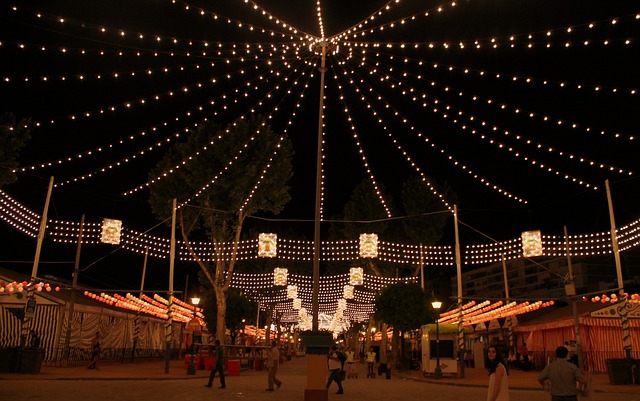Festivals have been an integral part of human culture for centuries, serving as vibrant expressions of communal identity, creativity, and tradition. They bring people together to celebrate various aspects of life, from religious and cultural rituals to music, art, and food. This article explores the significance of festivals, their diverse forms, and their impact on society.

The Essence of Festivals
Festivals are organized events that often involve public celebrations, performances, and activities centered around specific themes or traditions. They serve as a platform for communities to come together, share experiences, and celebrate their unique heritage and values. The essence of festivals lies in their ability to foster a sense of belonging and unity among participants.
- Cultural Celebrations: Many festivals are rooted in cultural or religious traditions, offering a way for communities to preserve and pass down their heritage. Examples include Diwali in India, Mardi Gras in New Orleans, and Carnival in Brazil. These festivals provide a space for cultural expression and reinforce shared values and customs.
- Artistic and Creative Expressions: Festivals often showcase a wide range of artistic and creative performances, including music, dance, theater, and visual arts. Events like the Edinburgh Festival Fringe and the Cannes Film Festival highlight the diversity of artistic talent and offer opportunities for emerging and established artists to present their work to a global audience.
- Community and Social Bonding: Festivals foster community spirit and social interaction. They create opportunities for people to connect, collaborate, and celebrate together. Whether through shared meals, music, or communal rituals, festivals strengthen social bonds and promote a sense of togetherness.
Types of Festivals
Festivals come in various forms, each with its own unique focus and significance. Some common types of festivals include:
- Religious Festivals: These festivals are centered around religious beliefs and practices. They often involve rituals, ceremonies, and celebrations related to sacred events or figures. Examples include Christmas, Ramadan, and Hanukkah. Religious festivals provide a sense of spiritual connection and reinforce faith-based traditions.
- Cultural Festivals: Cultural festivals celebrate the heritage, traditions, and customs of specific communities or regions. They often feature traditional music, dance, food, and crafts. Events like the Chinese New Year celebrations, the Albuquerque International Balloon Fiesta, and the Galway International Arts Festival showcase the rich cultural diversity of different regions.
- Music and Arts Festivals: These festivals focus on showcasing artistic talent and creativity. They often feature performances by musicians, dancers, and other artists, as well as exhibitions and workshops. Notable examples include Coachella, the Glastonbury Festival, and the Venice Biennale. Music and arts festivals provide a platform for artistic expression and cultural exchange.
- Food and Drink Festivals: Food and drink festivals celebrate culinary traditions and offer opportunities for sampling and enjoying various cuisines. Events like the Oktoberfest in Munich, the Taste of Chicago, and the Melbourne Food and Wine Festival highlight the diversity and richness of global food cultures.
- Seasonal Festivals: Seasonal festivals mark the changing of seasons and celebrate the natural rhythms of the year. Examples include harvest festivals, winter solstice celebrations, and springtime fairs. These festivals often involve outdoor activities, traditional rituals, and community gatherings.

Impact of Festivals
Festivals have a significant impact on individuals, communities, and societies. They contribute to cultural preservation, economic development, and social well-being in various ways:
- Cultural Preservation: Festivals play a crucial role in preserving and promoting cultural traditions and heritage. By celebrating traditional practices and customs, festivals help ensure that cultural knowledge and values are passed down to future generations.
- Economic Development: Festivals can have a positive economic impact on local communities. They attract tourists, generate revenue for businesses, and create job opportunities. Events like the Edinburgh Festival Fringe and the Sundance Film Festival contribute to the local economy by drawing visitors and boosting spending in the area.
- Social Well-being: Festivals enhance social well-being by providing opportunities for social interaction, community building, and personal enjoyment. They offer a sense of belonging and foster positive social connections, contributing to overall mental and emotional health.
- Cultural Exchange: Festivals serve as platforms for cultural exchange and understanding. They bring together people from different backgrounds and provide opportunities for learning and sharing. International festivals, such as the Cannes Film Festival and the World Music Festival, promote cross-cultural dialogue and appreciation.
Challenges and Considerations
While festivals offer numerous benefits, they also face challenges and considerations:
- Environmental Impact: Large-scale festivals can have significant environmental impacts, including waste generation, energy consumption, and pollution. Organizers are increasingly focusing on sustainability practices to minimize the ecological footprint of their events.
- Cultural Sensitivity: Festivals that involve cultural appropriation or misrepresentation can lead to tensions and conflicts. It is important for festival organizers to approach cultural elements with respect and sensitivity, ensuring that celebrations are inclusive and authentic.
- Safety and Security: Ensuring the safety and security of festival attendees is a critical consideration. Organizers must address issues such as crowd management, emergency response, and health and safety measures to create a safe and enjoyable experience for all participants.

Conclusion
Festivals are vibrant celebrations of culture, community, and creativity that bring people together to share experiences and celebrate life. From religious and cultural traditions to artistic and culinary expressions, festivals offer a rich tapestry of experiences that enrich our lives and strengthen our connections with others. As festivals continue to evolve and adapt to changing times, their role in promoting cultural heritage, social well-being, and economic development remains as important as ever.

